Laidlaw Scholars take on the Oxford Character Project Conference
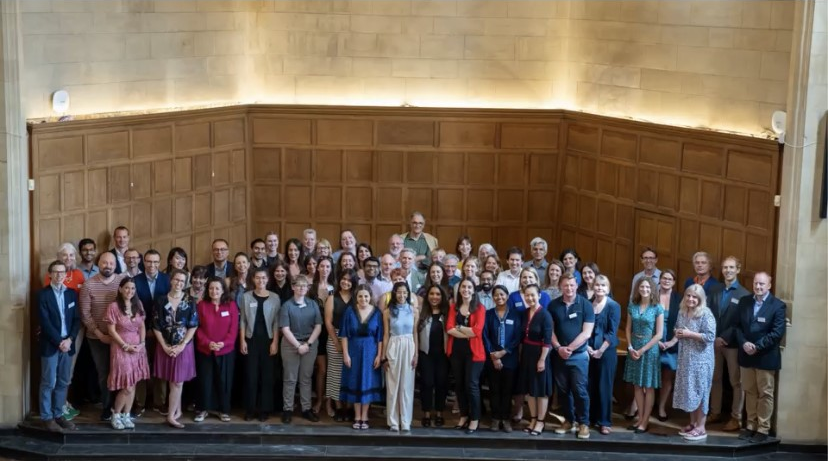
On Tuesday, we were scrambling up a gill. On Wednesday, we were crouching in a cave. On Thursday, we were sat at the dinner table in Rhodes House, Oxford, speaking to some of the UK's most inspiring leaders at the Oxford Character Project Conference. Of course we were!
Yet what these wildly unique scenarios have in common is their design to encourage the development of leadership skills by embracing and developing character. This post will aim to summarise the infinite amount of information we were provided with from each session of the conference in Oxford, which has truly transformed my approach to leadership. (Disclaimer: there were no caves at the conference, or gills - this was a separate trip. If this is what you were most excited to hear about, then I can only ask that you channel your excitement towards this article and embrace the worldly wisdom).
A special mention goes out to @Mallika Khathuria for so proactively discovering this opportunity and being kind enough to share it with our cohort, and to @Sebastian Glasper for joining us - you two made this trip.
Firstly, I encourage anyone interested in character and leadership to check out the work of the Oxford Character Project. This project is, similarly to the Laidlaw Programme, dedicated to improving leadership skills, specifically through "putting Character first." This means that extra consideration is given to character and how this influences leadership skills, and this was the running theme between a number of talks that included the balance of character dimensions, authenticity, values and virtues and more.
Plenary 1
The first plenary, "Character and Organisational Culture," explored the definition of character and how it influences organisational culture through the tension between excellence and effectiveness. Case studies from across history were drawn upon, such as the comparison between the Captains of Endurance and Titanic. Driven by excellence when Ismay (chairman and managing director of the White Star Line, the shipping company of Titanic) persuaded Smith (Captain) to increase engine speed, the obvious risks were disregarded, which resulted in failure. In contrast, Frank Worsley, Captain of Endurance, was able to safely lead his men away from the ship after it was trapped in Antarctic ice; the entire crew survived. When his men were hired, traits such as optimism, cheerfulness and a good sense of humour were prioritised. Their characters enhanced the mission's effectiveness, not in reaching its destination but in that no lives were lost. The proposal that leaders should not prioritise excellence at the cost of effectiveness, which character can contribute to, introduced the conference well.
Breakout 1
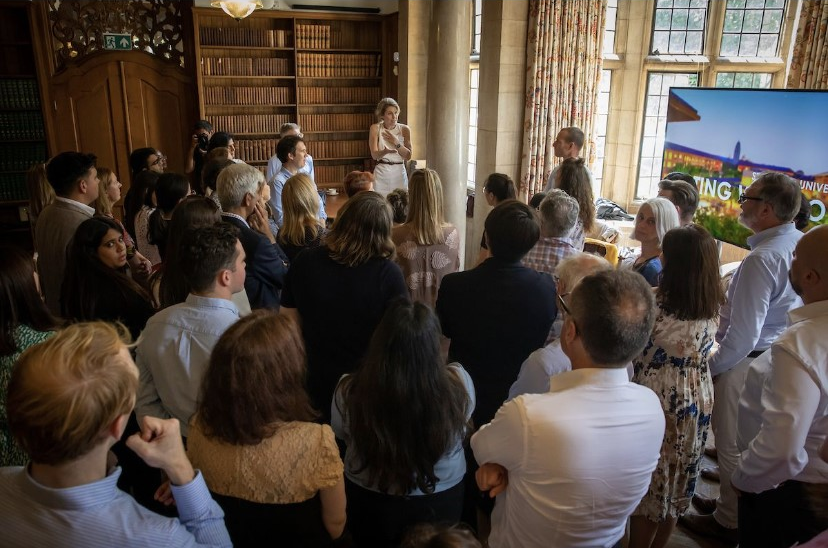
The concept that character drives effectiveness transitioned well into the first breakout session, "Acting with Power," led by Melissa Jones Briggs (Stanford Graduate School of Business). This interactive session was designed to showcase the importance of caring authentically for others within an organisation. This was conveyed through a series of activities: we were asked to walk around the room and keep an eye on a person of our choice - they would be the "prey". We were then asked to look out for a second person - the "predator." When Melissa said, we had to stand between those people, wherever they were in the room, to defend the "prey" from the "predator."
The first time we did this exercise, however, there was no "prey" - our only task was to separate ourselves from a chosen predator. The second exercise was more frantic because we were all far more driven to protect someone else than ourselves. This showcased how caring authentically for others improves motivation and performance, and this concept can be applied to the values carried by organisations and therefore, better leadership. Building on the performing arts theme of this session, we were also made aware of how our body language can be adjusted to "power up" or "power down," as well as the other dimensions of interpersonal perception such as "warming up" or "cooling off."
Plenary 2
After a delicious lunch, we were welcomed to the second plenary, which explored the perception of good leadership across sectors, age, position within an organisation and other factors using "Prototype Analysis." For example, more subordinate employees valued "helpfulness" as important than leaders. It was also revealed that the legal sector, up against law and tech, had more "unique" features to the other sectors (4 or 5 rather than 1 or 2) and practitioners valued fewer interpersonal values. A suggested reason for this is that lawyers tend to be promoted to leadership positions not according to their leadership skills, but legal skills. Furthermore, the session also revealed that younger generations are not simply less resilient, but are more likely to change jobs if their values differ to those of their company (which is likely reflected in how they are treated). If leaders can take this information on board, consideration of giving their business' values an overhaul would be an effective way to retain staff and create more enjoyable workplaces.
Breakout 2
The second plenary shifted nicely into the second breakout session, which also emphasised the importance of balance; this time, it was balance within. We were introduced to 10 "Character Dimensions" which contribute to our overall judgement. The dimensions are each at their optimum when they are balanced, so strengthening the weaker traits can support the over-balanced ones (for example, if an individual has overly high confidence but low transcendence, they should work upon increasing their transcendence rather than reducing their confidence!). Being aware of this can help build effective teams with traits to complement each other, and investing in our own character development as leaders can be powerful enough to shift a culture.
Dinner and Drinks!!
Having absorbed ample information from the day, we were treated to a wonderful drinks reception and dinner, in Milner Hall of Rhodes House, where we were able to continue networking and engaging in fascinating conversations with a number of accomplished people - including Laidlaw's very own @Anjali Sarker - It was hard to believe that only hours ago we stepped off an overnight coach from Leeds, but the adrenaline and excitement kept us wide awake. It was such a fantastic experience we will never forget!
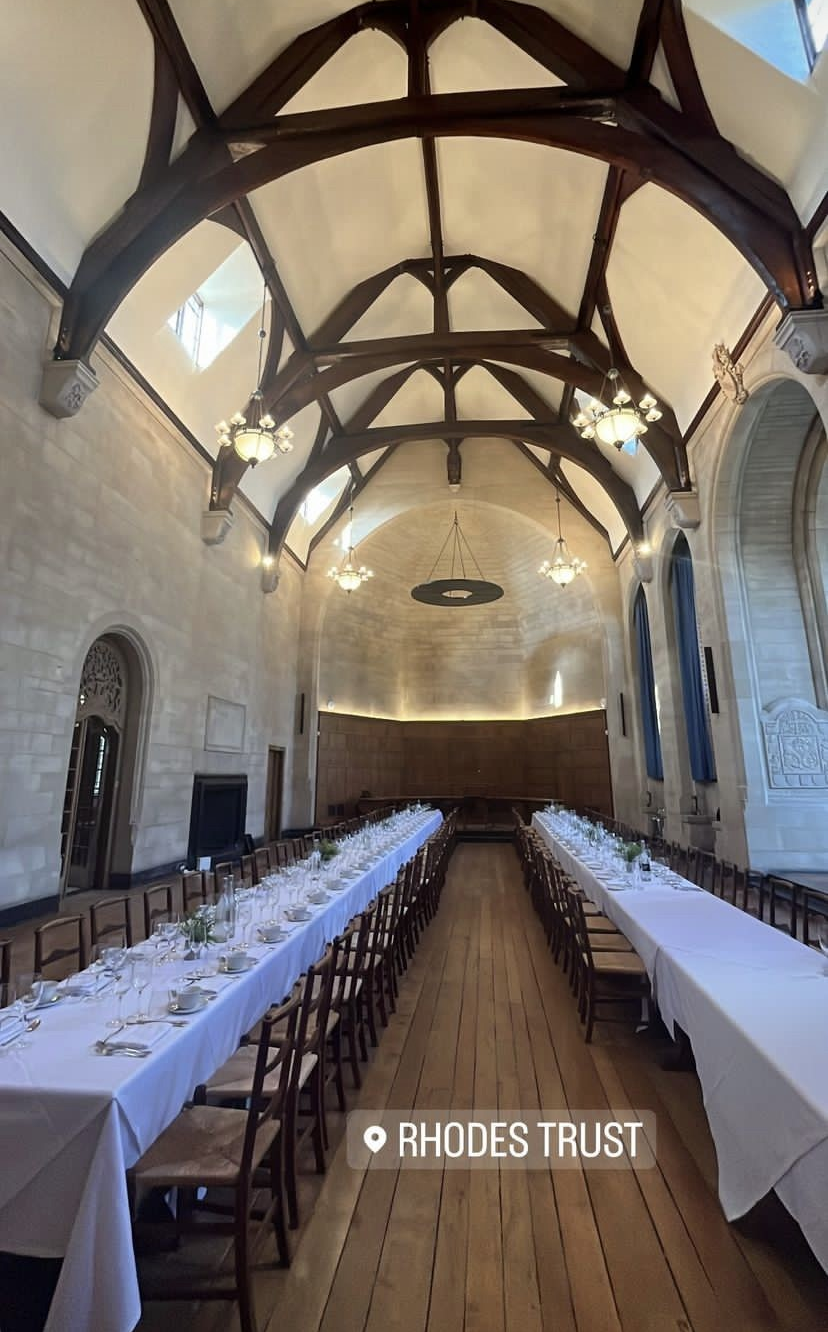
Plenary 3
The next morning, we hastily gathered what pastries we could from the breakfast banquet and traversed to the first plenary of the day. The contrast between values and virtues was discussed, as well as how virtues can be applied differently according to the firm. Values can often be guided by virtues - for example, flexibility comes with adaptability.
In order to enforce this thinking, it was proposed that businesses encourage more long-term thinking than just quarterly (as this can often steer goals towards being only profit oriented at the cost of more important inter-personal values of the firm). It was also proposed that leaders enforce values by paying attention to their use of language and who it is targeted towards - for example, not simply explaining how to "lead with love" but referring to a real-life scenario that can be taken more seriously by targeted recipients.
Breakout 3
This breakout session re-introduced the importance of returning to the Golden Rule - "treat others and the planet, as you would wish to be treated." This mantra should be embedded in the actions of leaders if we are to encourage organisations and individuals to act ethically. It was emphasised that altruism is wired within us, and that helping each other is what creates society. A "Life Economy" references John Perkins' "Death Economy" - the idea of living to succeed regardless of who is hurt along the way, maximising profit at the cost of ethics etc. Leaders tend to stop listening, but must begin doing so, as well as fostering shared success rather than encouraging an individual winner.
Plenary 4
The final plenary detailed practical methods of improving leadership by focusing on character. This involved 7 different strategies:
1) Habituation - applying virtue through intentional, repeated practice.
2) Reflection - "practical wisdom" - blocking out time dedicated to this in calendars, personal assessments, journaling, debriefings after projects, etc.
3) Exemplars - we become like those we admire - biographies, mentoring programs, interviews, awards.
4) Virtue literacy - discussion of particular virtues, definitions, corresponding vices, potential obstacles
5) Awareness of biases and pressures - "making the subconscious conscious" - expand networks, blind screening of CVs when hiring, inclusive hiring processes with standardised questions.
6) - Moral reminders - Reminders of core commitments to activate moral agency - code of ethics, oaths, checklist, visual reminders.
7) Friendships - different aspects: pleasure, utility, virtue.
Outro
The final session summarised the main points from throughout the conference, finished with some final thoughts from experts. Here are the takeaways that I found most striking:
- Reflecting upon identity and friendship, a cheating experiment was brought up: participants who were sat in front of a mirror in an exam were less likely to cheat because they were faced with themselves. We should see friendship in this way; it is our responsibility to guide each other, whilst also being able to confront ourselves. A member of the panel recalled her experience of complicitly perpetuating the toxic culture of her company, which only continued to harm her. Self-reflection and surrounding yourself with the right people can resolve this.
- It was noted that the world's more impactful changemakers over history were exclusive to their cause. Nelson Mandela changed the lives of those in South Africa in his lifetime. Likewise, Steve Jobs only created Apple. However, both have made a lasting impact across the world. But this is because they recognised that there are not enough hours in the day to complete everything, so focusing on one area is enough rather than spreading your efforts thin.
- Character Development is mandatory for the greatest leaders - think of Mandela's journey from entering prison to release.
And finally, my favourite takeaway:
- The world's changemakers have the capacity to be fearless, because they know that their cause is so important that even death is worthwhile if necessary. Mother Teresa and Nelson Mandela were closely attuned with their faith - they even knew when their time came. This can equate to being in tune with an inner voice; that having a strong connection with ourselves enables us to lead others with love and purpose.
This conference was pivotal in my development as a leader, and I find it extremely encouraging that topics that are sometimes described as "soft" - interpersonal skills, character, prioritising values for a life economy - are being seriously researched and promoted. Considering the number of CEOs and powerful individuals at the conference, I'm looking forward to more organisations taking on board these implementations to nurture better working cultures and more fulfilling work lives for those they lead. I hope you have enjoyed this article and absorb some helpful leadership tips.:) @Oxford University @Laidlaw Foundation
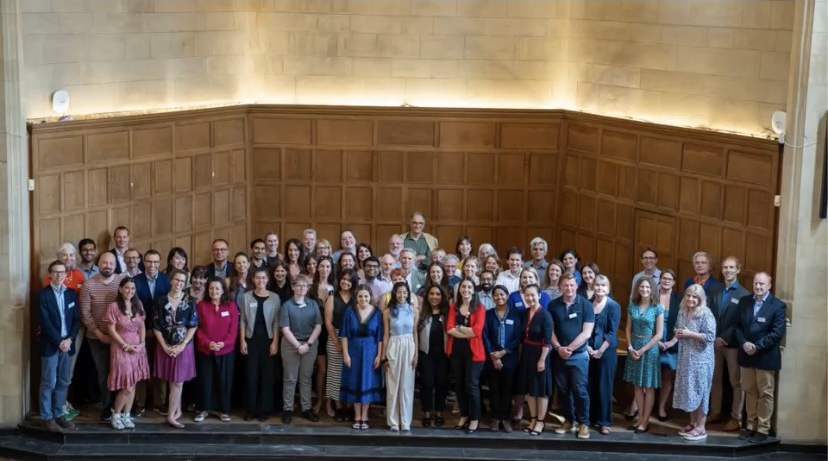
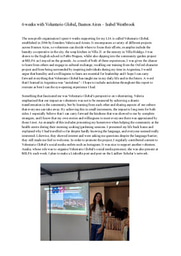



Please sign in
If you are a registered user on Laidlaw Scholars Network, please sign in
This is so well written - kudos to you for summarising the essence of our Oxford trip so well! And thank you for the shoutout - couldn’t have done it without you, and frankly wouldn’t want anyone else 🫶
Reading your post was like living the trip again! I was so happy you came with lots of fun memories made in Oxford - and lots of insight too!
This looks fantastic!